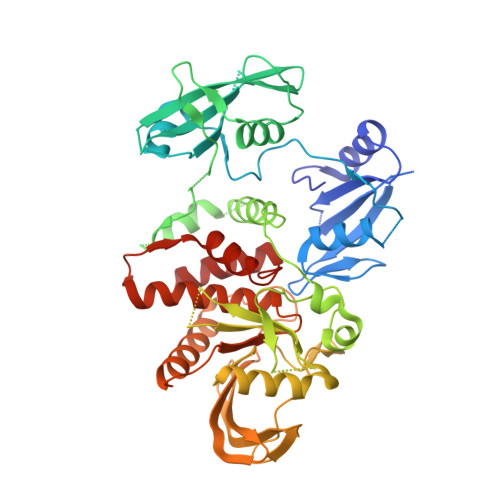Identification of an allosteric benzothiazolopyrimidone inhibitor of the oncogenic protein tyrosine phosphatase SHP2.
LaRochelle, J.R., Fodor, M., Ellegast, J.M., Liu, X., Vemulapalli, V., Mohseni, M., Stams, T., Buhrlage, S.J., Stegmaier, K., LaMarche, M.J., Acker, M.G., Blacklow, S.C.(2017) Bioorg Med Chem 25: 6479-6485
- PubMed: 29089257
- DOI: https://doi.org/10.1016/j.bmc.2017.10.025
- Primary Citation of Related Structures:
6BN5 - PubMed Abstract:
The PTPN11 oncogene encodes the cytoplasmic protein tyrosine phosphatase SHP2, which, through its role in multiple signaling pathways, promotes the progression of hematological malignancies and other cancers. Here, we employ high-throughput screening to discover a lead chemical scaffold, the benzothiazolopyrimidones, that allosterically inhibits this oncogenic phosphatase by simultaneously engaging the C-SH2 and PTP domains. We improved our lead to generate an analogue that better suppresses SHP2 activity in vitro. Suppression of Erk phopsphorylation by the lead compound is also consistent with SHP2 inhibition in AML cells. Our findings provide an alternative starting point for therapeutic intervention and will catalyze investigations into the relationship between SHP2 conformational regulation, activity, and disease progression.
Organizational Affiliation:
Department of Biological Chemistry & Molecular Pharmacology, Harvard Medical School, Boston, MA, USA; Department of Cancer Biology, Dana-Farber Cancer Institute, Boston, MA, USA.















